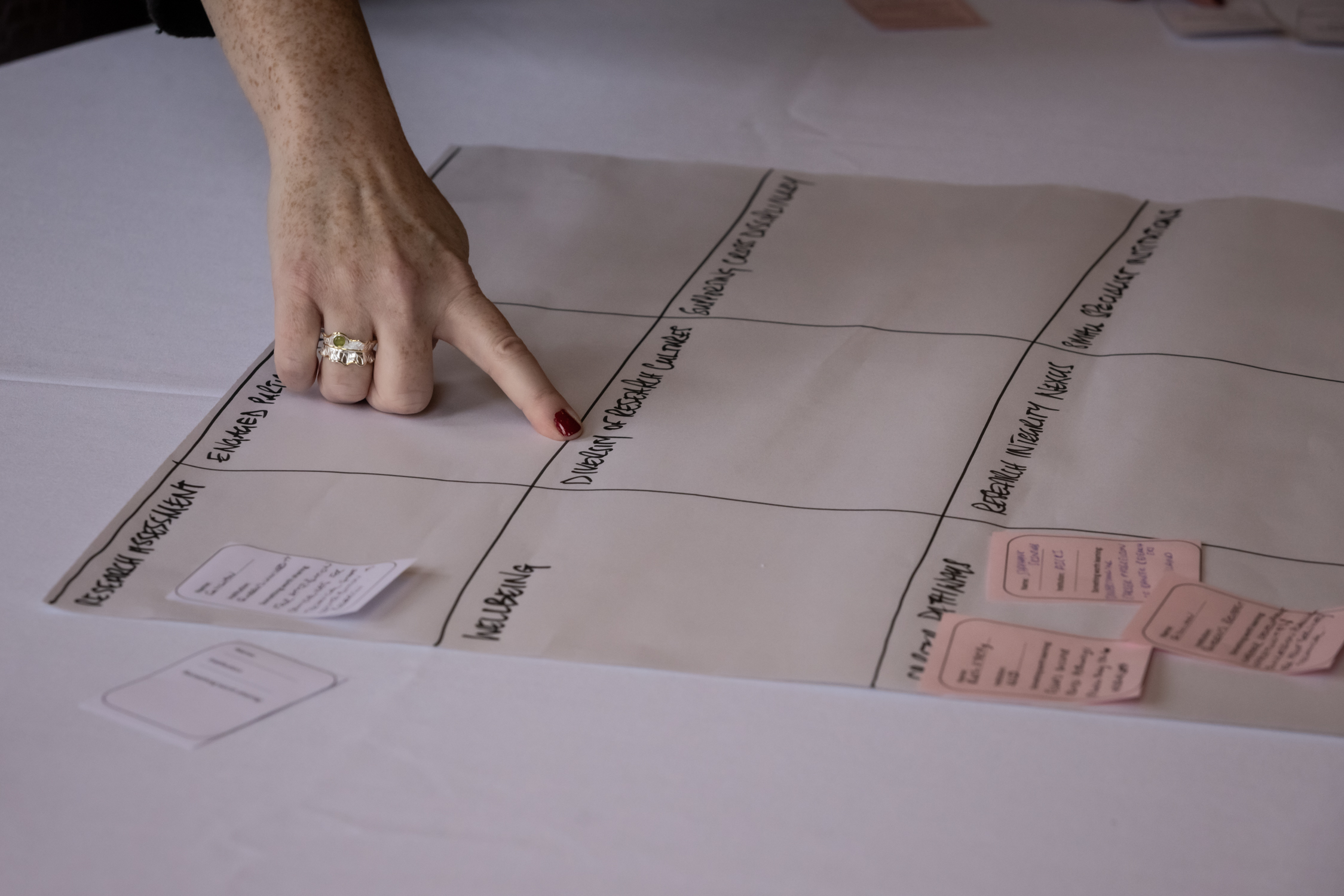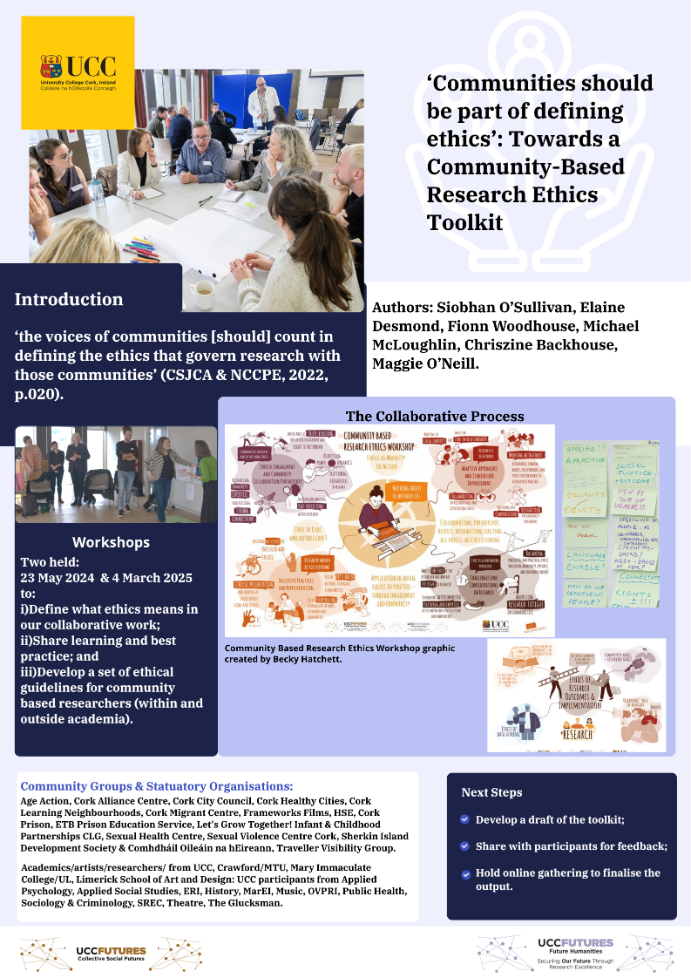
Communities should be part of defining ethics. Towards a Community Based Research Ethics Toolkit
Authors: Siobhan O’Sullivan, Elaine Desmond, Fionn Woodhouse, Michael McLoughlin, Chriszine Backhouse, Maggie O’Neill
Organisations: University College Cork, Munster Technological University, Limerick School of Art & Design, Technical University of the Shannon, with Mary Immaculate College and statutory and community based organisations and NGO’s.

Concerned by the need to create an ethics guide for conducting community based research in and with communities/community based organisations, we set out to bring local, regional and national community-based, arts-based and social action research practitioners/community partners together in order to discuss the following provocation ‘Communities should be part of defining ethics.’ Working together through creative consultation methods to build a shared research ethics culture we hosted two workshops that sought to i) define what ethics means in our collaborative work including the ethical challenges; ii) share learning and best practice; and iii) develop a set of ethical guidelines for community based researchers (within and outside the University). In the first workshop we asked - How do you define ‘ethics’ in your practice and/or research? What does 'ethics' in research mean to you? How did you address the ‘ethical challenges’ in your practice/research? Five key themes emerged from the first workshop: Ethical Engagement and Community Collaboration/Partnership; Inclusive Practices and Representation; Adaptive Approaches and Stakeholder Involvement; Challenges and Considerations in Research; Ethics of Implementation and Dissemination and the Role of Researchers in Advocacy. The second workshop built on these five themes and using interactive theatre methods we explored their interconnections in order to create a structure for the toolkit. This poster presentation documents the collaborative process and results to date as well as the shared learning, meaning making and the draft structure for the toolkit co-created by the workshop participants, supported by UCC Futures: Collective Social Futures and Future Humanities.
